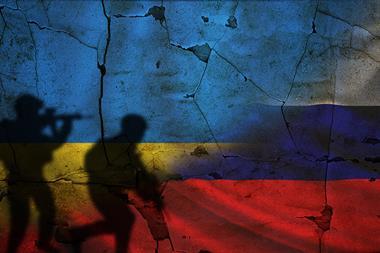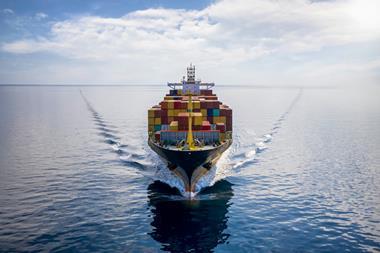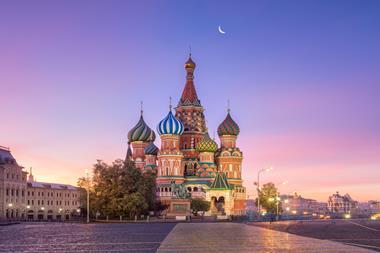Lessons learnt include the need for more robust crisis management and better contingencies
The Russia/Ukraine conflict was the defining security issue of 2022, highlighting how geopolitics and the threat of interstate conflict are back on the corporate risk agenda.
Today, 24 February 2023 marks one-year since the conflict began. In recognition of this milestone, International SOS shares insight into key lessons learnt and how this significant geo-political conflict impacts organisations’ risk outlook.
Since the conflict broke out International SOS’ support has handled over 1,900 cases, supporting over 640 clients. It successfully completed more than 60 secure ground movements from conflict zones, moving over 170 adults, three babies and 10 pets.
Managing crisis management fatigue
Having dealt with the pandemic for several years numerous organisations were not prepared or equipped to navigate such a significant geo-political conflict.
The conflict will certainly continue to have an impact in 2023, so it is beneficial for organisations to learn how to effectively handle the shifting global risk environment.
It is likely that geopolitical volatility will spread beyond Russia/Ukraine in the next 12 months, as increasing fissures between Russia and the West will impact other conflicts and exacerbate longstanding geopolitical tensions.
Sally Llewellyn, global security director, International SOS comments: “Considering the last 12 months’ events, security has proven to be key in geo-politics and is firmly on the corporate risk agenda.
”Many organisations did not anticipate the scale operations needed to effectively manage the impacts of the Ukraine/ Russia conflict.
”As best practice organisations need robust risk mitigation strategies which should include security awareness, understanding the risk environment, thorough preparation and ensuring that they have all the tools and resources they need.
Managing crisis management fatigue is key in moving from ‘perma-crisis’ to crisis resilience and organisations who effectively embedded learnings from the events of the last three years, particularly, the conflict in Ukraine, will emerge with more robust capabilities to manage challenges in the future.
Global impact
The Russian invasion of Ukraine has had sweeping impacts across the globe, from those affected on the ground who’s lives have been turned upside down, to businesses halfway across the world learning to deal with the economic impacts of the war and navigating the sanctions imposed, according to James Dennis, regional security coordinator at Healix.
“The invasion has highlighted how the world had become tied to an international order and norms which were not as stable as assumed,” he said.
”This failure to recognise vulnerabilities within the international trade and system of diplomatic relations meant that there was limited resilience to the shocks the invasion caused, which had unpredictable knock-on effects throughout the world and the established international order.
”This was particularly the case with regards to international trade, having a global impact on energy and food security and severe economic shocks.
”Few were predicting before the invasion that a war on the periphery of Europe would quickly result in a food security crisis in the Horn of Africa, political instability in West Africa and rapidly escalating tensions between the US and China.
“The conflict demonstrates the capacity for major geopolitical issues to transcend national borders in different ways. Organisations need to plan for a world where geopolitical risks exert a continued and growing influence on business continuity and risk management planning.”
Coping with inflation
The economic impact has been profound, with repercussions likely to be felt globally for years to come. This is according to James Burgess, head of Commercial at Atradius UK.
”Although not the primary cause, the global rise in inflation has been aggravated by the war. Back in January 2022, we expected global trade to grow by about 5.5% that year and 3.5% in 2023, figures that reflect post-lockdown, pre-war optimism,” he said. ”However last month the estimated figure for 2022 was about 3% and our forecast for 2023 just 1.5%.
”Needless to say, Russia and Ukraine have taken the biggest hit. Russia´s economy is estimated by Oxford Economics to have contracted 2.3% in 2022, while Ukraine’s shrank a whopping 30.1%. As of January 2023, this year’s GDP growth forecasts for Russia and Ukraine are -2.0% and -4.6% respectively.
Energy crisis and food prices
”Russia is also a major supplier of oil and gas, especially to Europe,” continued Burgess. ”That supply has fallen by 80% since the start of the war, and while European gas prices have fallen back from their 2022 peak, they are still four times higher than the pre-war figure, with significant supply disruption expected to continue in 2023.
”Energy price hikes also raise food production costs, exacerbating a shortage of supply. Together, pre-war Russia and Ukraine accounted for about 30% of global exports of wheat, 20% of corn and barley and 13% of fertiliser.
”Food prices were rising before the war, but the conflict supercharged that trend. Wheat prices were 30% higher in June 2022 than six months previously. An UN-brokered deal led to the resumption of grain exports from Ukraine, but prices remain 20% higher than a year ago.
”Both countries also supply important commodities. For example, Russia is a major supplier of nickel, used in battery manufacture. Pre-war, Ukraine produced 50% of the world’s refined neon, used in the production of semiconductors.
”As new trade patterns settle and a new normal emerges, some of the war’s sharpest impacts may ease. But if the war drags on, the global economy will continue to be battered by its direct and indirect consequences.”




















No comments yet